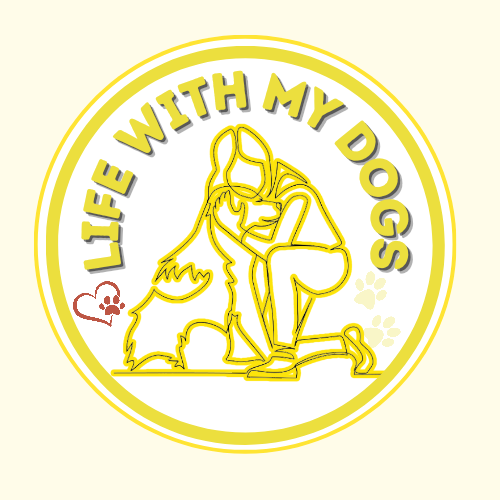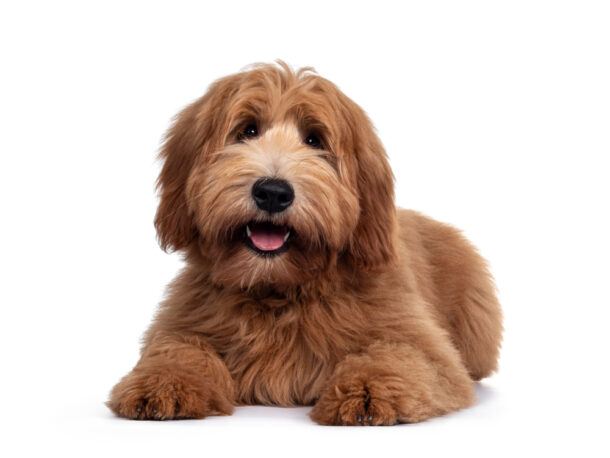LifeWithMyDogs is supported by our audience. When you purchase through one of our links, we may earn a small affiliate commission. As an Amazon Associate I earn from qualifying purchases. Your cost is not affected.
**********
Are Roombas loud? It’s a question that might have crossed your mind, especially if you share your space with a furry friend who values their beauty sleep. As our homes get smarter, and our cleaning methods more futuristic, the noise levels of these robo-helpers become a topic of curiosity for us dog lovers. So, let’s embark on a journey to answer that burning question and explore how Roombas might harmonize with our canine companions.
Picture this: your trusty Roomba gliding across the floor, on a mission to banish every last speck of dust. Meanwhile, your four-legged friend, cozy in their favorite spot, might be wondering, “Are Roombas loud enough to disrupt my nap?” Well, fear not, because we’re about to uncover the decibel truths and how they play into the delightful orchestra of dog ownership.
Are Roombas Loud: Decibel Levels Explained
As the prevalence of smart home appliances grows, robot vacuums such as Roomba are becoming an increasingly common sight in households. Yet, despite their convenience and technological advancement, a common question that tends to surface is whether or not these robotic helpers are loud. When it comes to Roomba noise levels, they typically do not exceed 60 to 70 decibels, making them comparable to a conversation in a restaurant or background music, hence not overly disruptive in everyday life.

The actual volume of a Roomba, however, can vary due to several factors. Different models may exhibit varying sound levels; for instance, the Roomba i7+ and s9+ are notable for being quieter, especially on hard floors and while self-emptying their dirt bins. Additionally, the sound may be influenced by the surface it is cleaning and whether the vacuum encounters any issues, like a tangled brush or a full dustbin, which can cause a temporary increase in noise.
Key Takeaways
- Roomba vacuums generally have a noise level comparable to normal conversation.
- Models and operational factors can affect the vacuum’s noise output.
- Regular maintenance can help in minimizing Roomba’s operational noise.
Understanding Roomba Noise Levels
Roomba vacuum cleaners have become a staple in modern homes, offering automated cleaning with varied noise outputs depending on the model.
Decibel Ratings Explained
The noise emitted by Roomba vacuums is measured in decibels (dB), a unit representing the intensity of sound. On this scale, a Roomba’s noise level typically ranges from 45 to 70 dB. To put it in perspective, this range is comparable to the sound levels of a normal conversation, which averages around 60 dB. An understanding of Roomba’s specific decibel ratings is crucial in assessing its loudness in a home setting.
Comparison to Traditional Vacuums
Compared to traditional upright vacuum cleaners which can reach upwards of 80 dB, Roombas usually operate at a lower noise level. While the average traditional vacuum cleaner is much louder, Roombas maintain a more user-friendly noise profile while cleaning. This is often one of the key considerations for users when choosing between a Roomba and a standard vacuum cleaner.
Factors Influencing Roomba Noise
The noise level of iRobot Roombas is affected by several factors, including the specific model, the type of flooring, and the selected cleaning mode. Understanding these can help users mitigate noise concerns.
Model Variations
Each Roomba model comes with its own noise profile, which can range between 45 and 70 decibels. Generally, newer models tend to incorporate advanced technology designed to reduce operational noise.
Floor Types
The type of flooring can significantly impact the noise a Roomba makes. Hard surfaces like tile or wood can cause the sound to reverberate, while carpets tend to absorb sound, making the vacuuming process quieter.
Cleaning Modes
Roombas often offer different cleaning modes, which can alter the noise level. A standard clean mode might be quieter, whereas a mode intended for deeper cleaning could result in increased noise due to higher suction power.
Noise Reduction Techniques
Roomba vacuums are designed for convenience, but their noise levels can be a concern for some users. The following techniques can effectively reduce a Roomba’s operational noise.
Scheduled Cleaning Times
Setting a Roomba to clean during times when noise is less likely to disturb household activities can mitigate the issue of loudness. For instance, scheduling a cleaning cycle for mid-day when the home is empty or during early evening hours when ambient noise is higher can help minimize the disruptive impact of a Roomba’s operation.
Regular Maintenance
Regular cleaning and maintenance are crucial for keeping a Roomba running quietly. Debris in the brushes or a clogged filter can cause the device to work harder and louder. Users should follow a maintenance routine that includes:
- Cleaning the brushes: Ensuring they are free of tangles and debris.
- Emptying the bin: Regularly, to prevent overworking.
- Cleaning the filter: To maintain proper airflow and suction.
Strategic Placement
The surface on which a Roomba operates can affect its noise level. Roombas tend to be louder on hard surfaces than on carpet. Placing rugs or mats under docking stations can also reduce noise when the Roomba is docking or undocking. Additionally, keeping the Roomba away from echo-prone areas, such as large empty halls, can diminish perceived loudness.
User Experiences with Roomba Noise
User experiences regarding the noise levels of Roombas vary, with some finding it loud and disruptive while others consider it reasonable. These differences are often detailed in customer reviews and discussed in community spaces.
Customer Reviews
Customers often cite the noise level of their Roombas in reviews, and these can be a good indicator of the real-world experience. For example, reviews on digitaltrends indicate that some users find that cleaning the brushes can reduce noise, suggesting maintenance may play a role. Others might note the regular operation sound level to be louder than expected.
- Noise-related complaints: Some customers report their Roomba operates at a noticeably loud level.
- Solutions shared: Cleaning suggestions and maintenance advice are common among reviews for reducing noise.
Community Feedback
In online forums like Reddit, Roomba users congregate to discuss their experiences, including noise levels. These communities are valuable for gaining insights from a broad user base.
- Sound measurements: Community members have measured noise in decibels, with some Roombas reaching over 70 dB.
- Personal accounts: Descriptions of having to raise voices to communicate in the same room as an operating Roomba illustrate the impact of the machine’s noise levels on daily life.
Alternatives to Roomba
When considering alternatives to Roomba, potential buyers often seek quieter robotic vacuums or explore manual vacuuming solutions. Each option varies by noise level, functionality, and involvement required from the user.
Quieter Robotic Vacuums
Several competitors to Roomba have designed robotic vacuums that operate at lower noise levels. The eufy BoostIQ RoboVac 11S is noted for its quiet operation alongside its slim design. Additionally, the ILIFE V3s Pro is often commended for being particularly silent while being adept at picking up pet hair.
Manual Vacuuming Solutions
For those who prefer manual control, there are vacuums designed to operate more quietly than traditional models. Stick vacuums and upright vacuums with enhanced insulation around the motor can significantly reduce noise output. Moreover, hand vacuums equipped with noise reduction technologies enable spot cleaning with minimal disturbance.
Are Roombas Loud? Finding Tranquility in Pawfection
Are Roombas loud? We’ve journeyed through the decibel realms to answer this burning question, especially for our fellow dog enthusiasts. The verdict? Typically, these robo-helpers operate at a conversational hum, not too dissimilar from the background melodies of everyday life.
As we’ve discovered, the noise levels can vary, influenced by factors such as models, cleaning modes, and floor types. But fear not, pet parents, for there are tricks up our sleeves to turn down the volume. Scheduled cleaning times, regular maintenance rituals, and strategic placement can all contribute to a more harmonious coexistence with your Roomba and your furry friend.
So, whether your canine companion is a laid-back lounging expert or a spirited playtime enthusiast, the Roomba’s melody can be orchestrated to complement rather than disrupt. As technology advances, the symphony of smart homes and dog ownership continues to find its perfect cadence.
In the end, the key is understanding that every household has its unique rhythm, and with a bit of care and consideration, your Roomba can become a trusted member of your pet-friendly orchestra. Here’s to a clean home, a happy dog, and the sweet sound of cohabitation in perfect pitch.
Frequently Asked Questions

This section addresses some of the most common inquiries regarding the noise levels of Roomba robotic vacuums, comparing them to traditional vacuums and explaining various noises users may experience during operation and charging.
How do Roomba noise levels compare to traditional vacuums?
Roomba vacuums typically operate at a lower noise level than most traditional vacuums. Traditional vacuums can be notably louder, with Roombas often being a more subdued presence in the home.
What does a Roomba's loud vibrating noise indicate?
A loud vibrating noise from a Roomba often suggests an issue with the debris on the brush or filter, or potentially a mechanical problem with the vacuum’s components.
Can a Roomba make noise while it's charging and what does it mean?
Yes, a Roomba can emit noises while charging, which might indicate a charging malfunction or be part of the robot’s normal operation, such as emitting a beep when it docks or finishes charging.
Has the noise level of Roombas decreased in recent models?
Recent Roomba models have seen improvements in noise reduction technologies, making them generally quieter than their predecessors.
What are common troubleshooting steps for a loud screeching noise from a Roomba?
For a loud screeching noise, the steps typically include checking for debris entanglement, properly positioning the extractors, and ensuring the brushes or filters aren’t worn out.
What are the potential drawbacks of Roomba vacuums, including their noise?
Despite their convenience, Roombas might be disruptive for some users sensitive to noise and might require regular maintenance to prevent noise issues.
Unleash the Fun: Dive into Our Pet-Perfect Community!
Embark on a journey through the vibrant world of pet ownership with Life With My Dogs. Our social media channels are not just spaces; they’re lively communities where pet enthusiasts gather, share experiences, and celebrate the joys of furry companionship.
? Facebook: Join us on Facebook for daily doses of adorable pet moments, expert tips, and engaging discussions. Discover new products, share your insights, and connect with fellow pet parents who understand the unique joy of life with dogs.
? Instagram: Immerse yourself in the visual splendor of pet-friendly adventures on Instagram. From heartwarming snapshots to behind-the-scenes antics, our feed is a gallery of the countless ways our four-legged friends fill our lives with love.
? Pinterest: Seeking inspiration for your next pet-friendly excursion or tips on enhancing your dog’s well-being? Explore our curated boards on Pinterest, where pet care meets creativity, offering a canvas of ideas for a life filled with tail wags.
? Twitter: Stay in the loop with the latest trends, product reviews, and pet-centric conversations on Twitter. It’s your real-time ticket to a community that understands the unique bond between humans and their canine companions.
So, wag your way over to our digital den and become a part of a community that cherishes every paw print and relishes in the joy of life with dogs. Let’s make every tail wag and every adventure unforgettable together! ?✨

